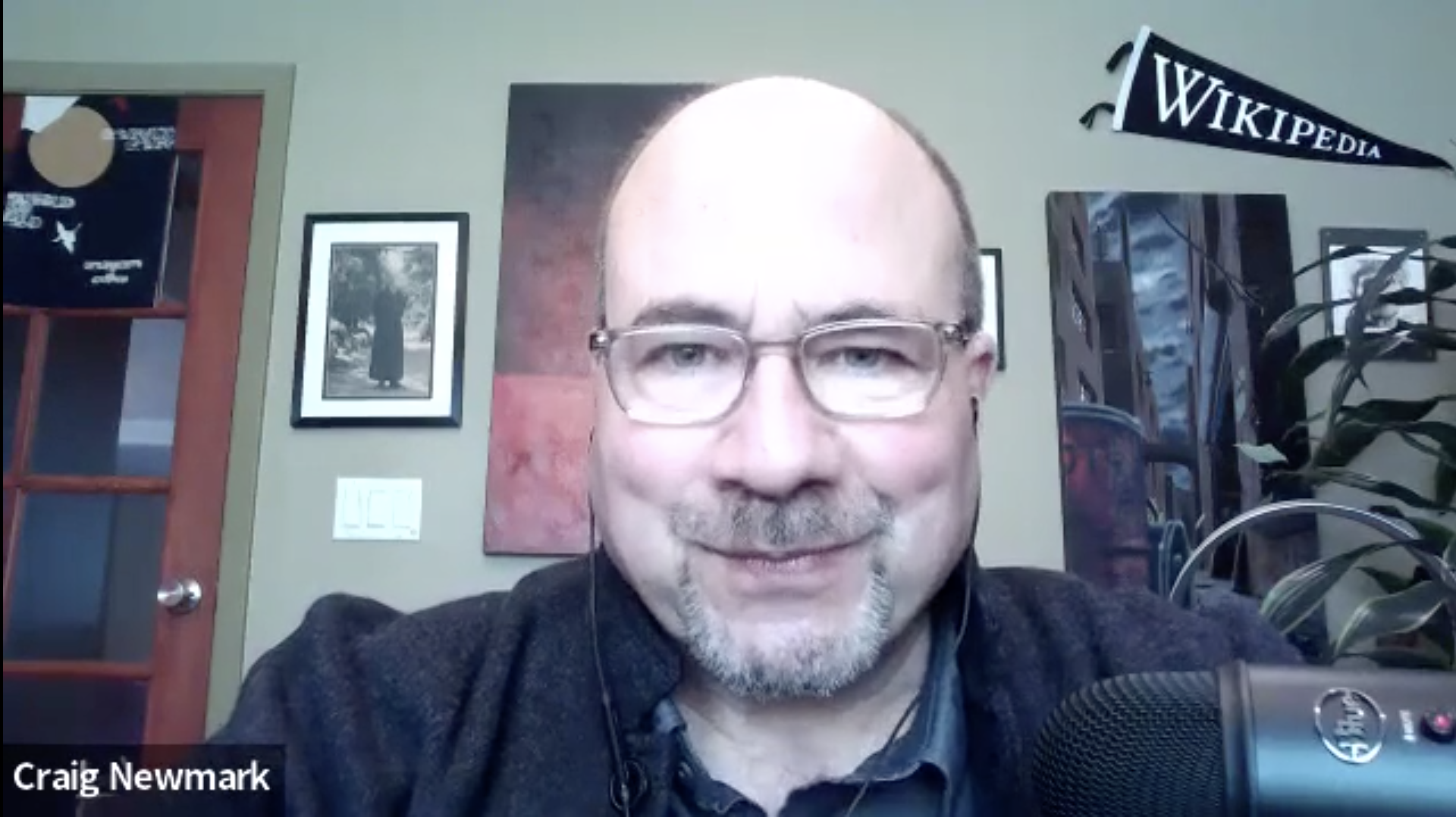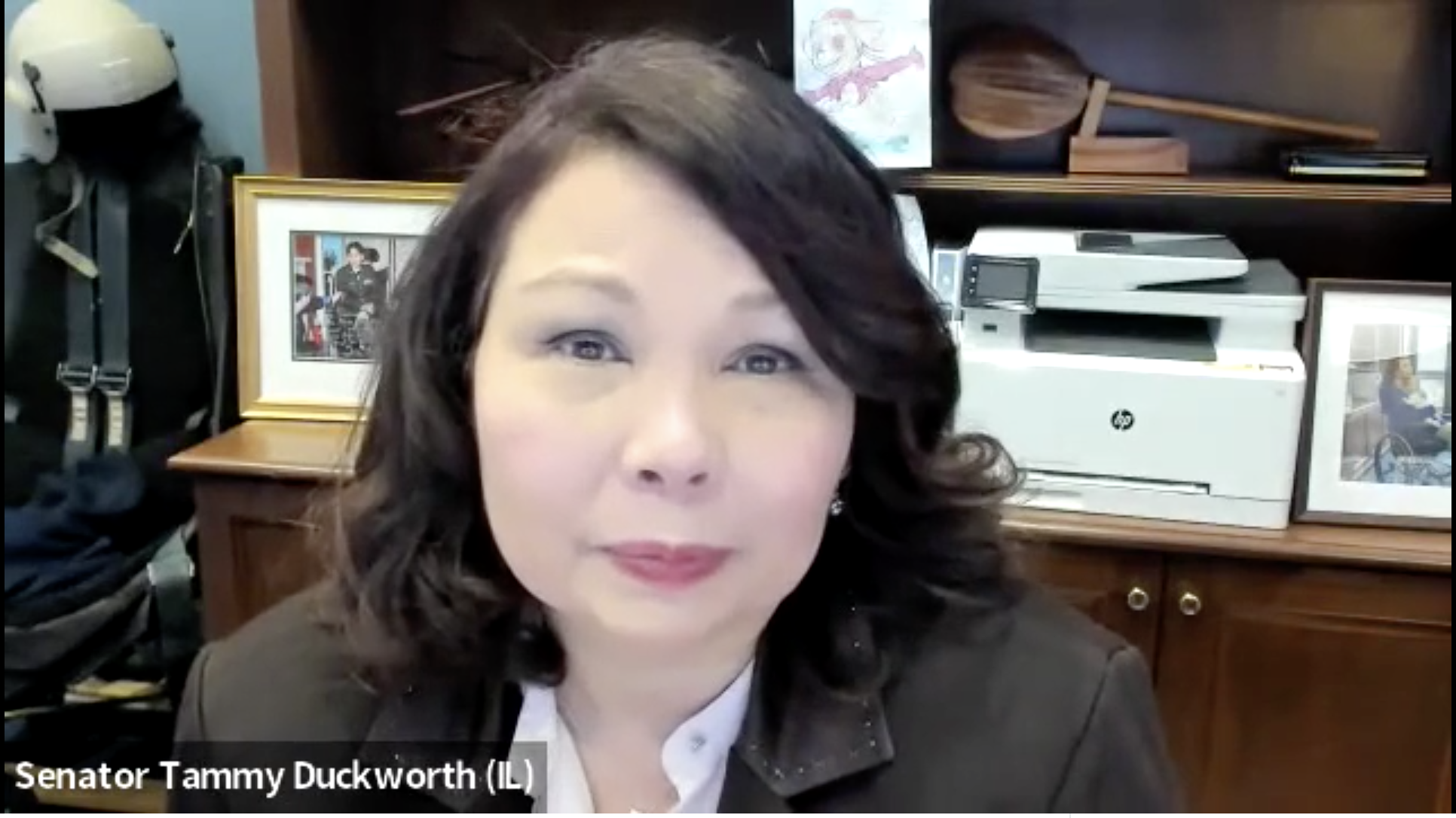On Tuesday, MAZON’s President and CEO, Abby Leibman, had a chance to sit down with U.S. Senator Tammy Duckworth (D-IL) and philanthropist Craig Newmark for a conversation on hunger among veteran and military families and the need for advocates, policymakers, and philanthropists to work together to end it.

The conversation served as a fitting cross-section of the kind of holistic approach the U.S. needs in order to effectively and permanently address food insecurity within the military community; the close coordination between lawmakers like Sen. Duckworth, philanthropists like Newmark, and advocacy organizations like MAZON serves as a powerful model to build on.
MAZON has been on the front lines of combating food insecurity within the veteran and military communities for close to a decade. The fact that food banks operate on or near every military base in the United States speaks to the inadequate resources provided to families who are already sacrificing so much for our country. But creating a two-way relationship with policymakers is essential to seeing MAZON’s advocacy work result in policy change.
Similarly, policymakers rely on advocates and constituents to spotlight issues and raise them to a national stage. “What I really need help with,” Sen. Duckworth said, “is to make sure that our partners — especially in philanthropy, especially in advocacy organizations — keep this issue at the forefront of the discussion so that it is something people are aware of and talking about.
“I rely on advocacy organizations to provide me with the data. Because oftentimes, the [government] departments that are in charge don’t want to admit this is a problem; the DoD [Department of Defense] did not want to admit this was a problem.”
Last month, Secretary of Defense Lloyd Austin took a significant first step towards addressing the problem, publicly acknowledging for the first time that food insecurity is a pressing issue in need of immediate attention. But his proposed solution — directing those in need to the nearest food bank — isn’t a solution at all.

Abby underscored the Senator’s comments: “This is his responsibility,” she said “The military is governed by, supported by, structured by, maintained by the federal government. This is not charity’s responsibility. […] For generations, our government has outsourced the problem of supporting its troops financially and providing them with food security to the charitable sector, which is not equipped to do this. This is the responsibility of the federal government.”
Another problem hindering effective solutions to veteran and military family hunger is persistent stigma and shame. Advocates, policymakers, and philanthropists alike have all faced pushback against the issue, something Sen. Duckworth says is “offensive,” “wrong,” and “intellectually dishonest.” To counter the stigma, Newmark reiterated the need to “loudly and persistently repeat that we owe a lot to veterans and their families — they have earned the benefits.”
In the coming days, the Senate aims to pass the National Defense Authorization Act (NDAA), which includes a provision that MAZON devised and advanced — creating a “Military Family Basic Needs Allowance. In September the House passed a similar, stronger provision in its version of the NDAA; it will fall to both houses of Congress to determine how robust the final provision will be when the bill is sent to President Biden’s desk. As Sen. Duckworth noted, and as MAZON has repeatedly argued, military families will be better off if the House version is adapted.
Watch the conversation on military food insecurity here: